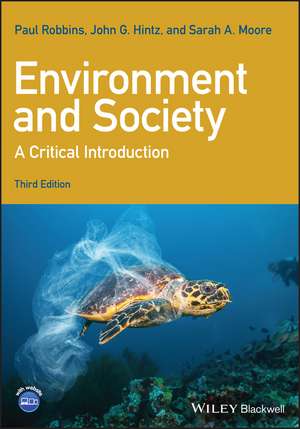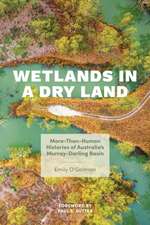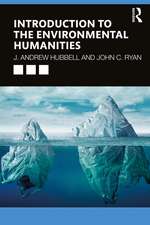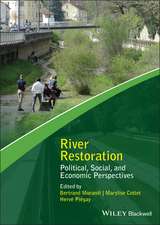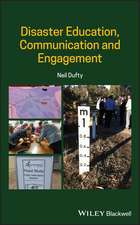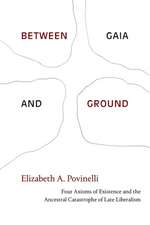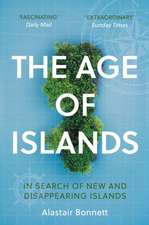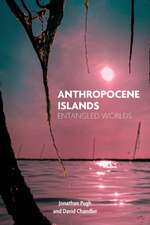Environment and Society: A Critical Introduction: Critical Introductions to Geography
Autor P Robbinsen Limba Engleză Paperback – 13 apr 2022
Preț: 354.30 lei
Nou
Puncte Express: 531
Preț estimativ în valută:
67.79€ • 70.97$ • 56.10£
67.79€ • 70.97$ • 56.10£
Carte disponibilă
Livrare economică 17-31 martie
Livrare express 28 februarie-06 martie pentru 50.12 lei
Preluare comenzi: 021 569.72.76
Specificații
ISBN-13: 9781119408239
ISBN-10: 1119408237
Pagini: 400
Dimensiuni: 178 x 261 x 19 mm
Greutate: 0.79 kg
Ediția:3rd Edition
Editura: Wiley
Seria Critical Introductions to Geography
Locul publicării:Chichester, United Kingdom
ISBN-10: 1119408237
Pagini: 400
Dimensiuni: 178 x 261 x 19 mm
Greutate: 0.79 kg
Ediția:3rd Edition
Editura: Wiley
Seria Critical Introductions to Geography
Locul publicării:Chichester, United Kingdom
Cuprins
List of Figures x
List of Tables xv
List of Boxes xvi
Acknowledgments xvii
About the Companion Website xviii
1 Introduction: The View from a Human-Made Wild 1
What is This Book? 6
The Authors' Points of View 9
Part I Approaches and Perspectives 13
2 Population and Scarcity 15
A Booming China or a Busting One? 16
The Problem of Exponential Growth 17
Population, Development, and Environment Impact 19
The Other Side of the Coin: Population and Innovation 23
Limits to Population: An Effect Rather than a Cause? 24
Thinking with Population 29
3 Markets and Commodities 33
The Bet 34
Managing Environmental Bads: The Coase Theorem 37
Market Failure 39
Market-Based Solutions to Environmental Problems 40
Beyond Market Failure: Gaps between Nature and Economy 45
Thinking with Markets 48
4 Institutions and "The Commons" 51
Controlling Carbon? 52
The Prisoner's Dilemma 52
The Tragedy of the Commons 54
The Evidence and Logic of Collective Action 56
Crafting Sustainable Environmental Institutions 58
Are All Commoners Equal? Does Scale Matter? 62
Thinking with Institutions 64
5 Environmental Ethics 67
The Price of Cheap Meat 68
Improving Nature: From Biblical Tradition to John Locke 70
Gifford Pinchot vs. John Muir in Yosemite, California 72
Aldo Leopold and "The Land Ethic" 74
Liberation for Animals! 76
CAFOs and Climate Change: Now that You Know, What Should You Do? 78
Holism and Other Pitfalls 78
Thinking with Ethics 80
6 Risks and Technology 83
The Bt Cotton Revolution 84
Environments as Hazard 85
The Problem of Risk Perception 87
Risk as Culture 90
Beyond Risk: The Political Economy of Hazards 92
Thinking with Risk and Technology 95
7 Political Economy 99
The Contradictions of COVID-19 100
Labor, Accumulation, and Crisis 101
Production of Nature 108
Global Capitalism and the Ecology of Uneven Development 110
Social Reproduction and Nature 112
Environments and Economism 114
Thinking with Political Economy 114
8 Social Construction of Nature 118
The Blank Spot on the Map 119
So You Say It's "Natural?" 120
Environmental Discourse 124
The Limits of Constructivism: Science, Relativism, and the Very Material World 129
Thinking with Construction 132
9 Feminism and the Environment 136
Gender and Environment 138
From Earth as Woman to Ecofeminism 140
Feminist Approaches to Economies and Nature 142
Feminist Approaches to Knowledge and the Environment 146
Thinking with Feminism and the Environment 152
10 Racialized Environments 156
Structural Environmental Racism 158
Environmental Justice 159
Settler Colonialism 163
Whiteness and Nature 169
Thinking with Racialized Environments 170
Part II Objects of Concern 175
11 Carbon Dioxide 177
Stuck in Pittsburgh Traffic 178
A Short History of CO2 178
Institutions: Climate Free-Riders and Carbon Cooperation 184
Markets: Trading More Gases, Buying Less Carbon 190
Political Economy: Who Killed the Atmosphere? 193
The Carbon Puzzle 196
12 Trees 200
Chained to a Tree in Berkeley, California 201
A Short History of Trees 201
Population and Markets: The Forest Transition Theory 209
Political Economy: Accumulation and Deforestation 212
Gender, Trees, and Power: Feminist Insights into Forests 214
Ethics, Justice, and Equity: Should Trees Have Standing? 216
The Tree Puzzle 218
13 Wolves 222
Wolves, Be Wary Where You Tread 223
A Short History of Wolves 224
Ethics: Rewilding and Wolves 229
Institutions: Stakeholder Management 232
Feminism: Of Wolves and Masculinity 235
The Wolf Puzzle 238
14 Uranium 242
Promise and Peril in Post-Nuclear Worlds 243
A Short History of Uranium 244
Risk and Hazards: Debating the Fate of High-Level Radioactive Waste 250
Race: Environmental Justice and the Navajo Nation 253
Social Construction: Discourses at Work in Australia 256
The Uranium Puzzle 260
15 Tuna 264
Big Trouble for Big Tuna 265
A Short History of Tuna 265
Markets and Commodities: Eco-Labels to the Rescue? 270
Political Economy: Re-regulating Fishery Economies 273
Ethics: Saving Animals, Conserving Species 276
The Tuna Puzzle 279
16 Lawns 283
How Much Do People Love Lawns? 284
A Short History of Lawns 284
Risk and Chemical Decision-Making 288
Social Construction: Good Lawns Mean Good People 291
Political Economy: The Chemical Tail Wags the Turfgrass Dog 292
The Lawn Puzzle 295
17 Bottled Water 298
A Tale of Two Bottles 299
A Short History of Bottled Water 300
Population: Bottling for Scarcity? 305
Risk and Technology: Health and Safety in a Bottle? 307
Political Economy: Manufacturing Demand on an Enclosed Commons 309
Racialized Environments: The Burden of Bottled Water in the United States 312
The Bottled Water Puzzle 314
18 French Fries 318
Getting Your French Fry Fix 319
A Short History of the Fry 319
Feminist Approaches: The Body Politics of French Fries 325
Political Economy and Racialized Environments: Have it Your Way? 328
Ethics: Protecting or Engineering Potato Heritage? 333
The French Fry Puzzle 337
19 E-Waste 341
Digital Divides 342
A Short History of E-Waste 343
E-Waste and Markets: From Externality to Commodity 348
The Political Economy of E-Waste 351
E-Waste and Racialized Environments 355
The E-Waste Puzzle 359
Glossary 362
Index 372
Notă biografică
Paul Robbins is Professor and Dean of the Nelson Institute for Environmental Studies at the University of Wisconsin-Madison, USA. His research interests focus on understanding human-environment systems, the influence non-humans have on human behavior and organization, and the implications these interactions hold for ecosystem health, local communities, and social justice. He is also author of Political Ecology: A Critical Introduction, now in its third edition (Wiley Blackwell, 2019). John G. Hintz is Professor of Environmental, Geographical, and Geological Sciences at Bloomsburg University of Pennsylvania, USA. His research interests include the politics of public lands management, mapping protected areas, and sustainable agriculture. He has published in several journals, including Capitalism Nature Socialism and Ethics, Place & Environment. Sarah A. Moore is Associate Professor of Geography at the University of Wisconsin-Madison, USA. Her research investigates the political, economic, and social dimensions of waste management at several scales. Her publications include articles in numerous journals including Progress in Human Geography, The Professional Geographer, and Society and Natural Resources.
